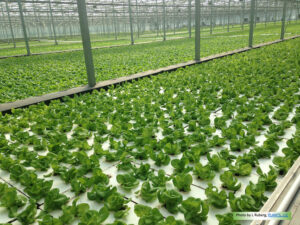
Earth’s increase in population and decrease in farmland poses a great challenge for food security across our planet.* The challenge of how to feed 9.9 billion people urges new ideas for growing and distributing food.** Food security concerns affects all people and all cultures. We invite youth to be learners and leaders that meet these challenges with a new vision of agriculture. Can this new vision for crop production merge optimized food production with sustainable farming practices?
The process of re-envisioning crop production begins with digging deep into current plant growth practices. Our emerging leaders in agriculture will also need to think about their role and possible career opportunities in the fields of sustainable and precision agriculture.
WVU Extension Service and WV-based PLANTS, LLC are partnering on a project to create an online curriculum that engages youth in a future-focused agriculture education journey. The NASA West Virginia Space Grant Consortium has provided funding for this project. The Iowa State University 4-H program, developer of Crops Feed the World online lessons, is also an active partner in the development of the online lessons. A New Vision of Agriculture expands upon Crops Feed the World lessons with hydroponics (soilless) plant production lessons and hands-on activities.
Here are some of the questions that students will explore in A New Vision of Agriculture:
• How do plant seeds differ in terms of germination rates, structures, and plant types?
• What type of plant maintenance is important for each stage of plant growth?
• How does light intensity and duration affect photosynthesis?
• What are key elements of a healthy soil, and how does soil quality affect plant growth?
• When are soilless plant production systems good alternatives to soil-based farming?
• What plant growth strategies can be used to conserve water?
• How can farmers apply new plant growth technologies to increase crop yield and integrate sustainable agricultural practices?
Pilot testing for the A New Vision of Agriculture curriculum begins in the fall of 2021. A second pilot testing session begins in January of 2022.
Although seeming opposite, organic and soilless plant production methods are alike in their use of sustainable practices and conservation of resources. The challenge for today’s youth is clear–join the movement to find new ways to grow food more efficiently and more sustainably. This is a fertile area for creativity, innovation, and research.
For more information, contact Laurie Ruberg CEO, PLANTS (LFRuberg at gmail.com), LLC or Karen Cox, WVU Extension Agent, Ohio County (Karen.Cox at mail.wvu.edu).
___
*Read more about world population growth projections presented by the International Institute for Sustainable Development (IISD) at: https://sdg.iisd.org/news/world-population-to-reach-9-9-billion-by-2050/
